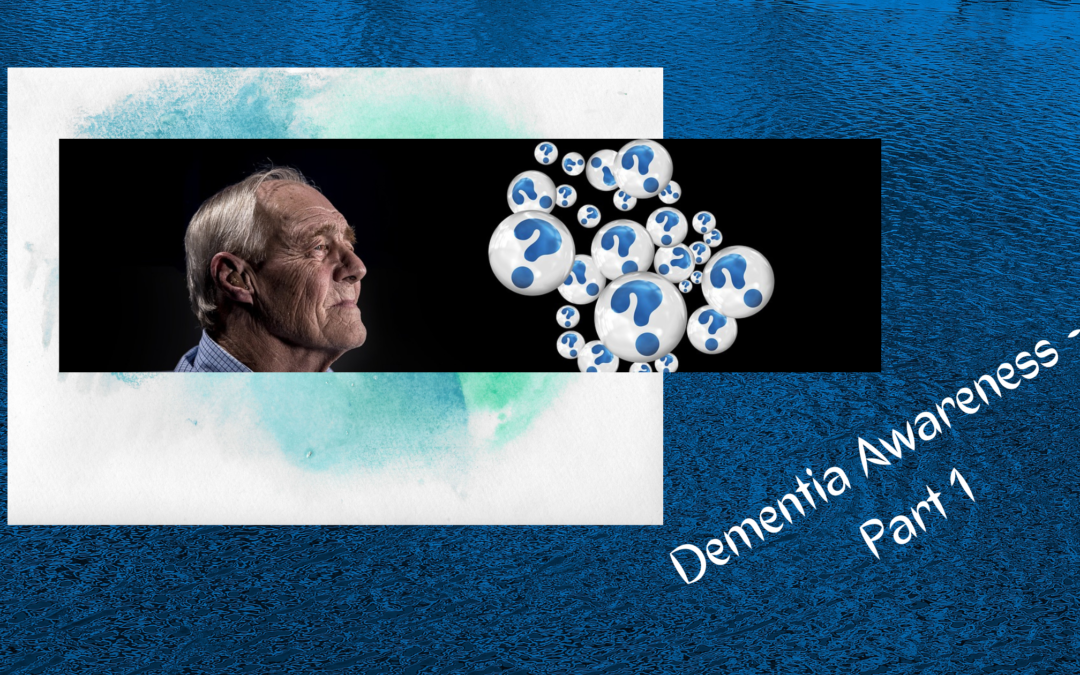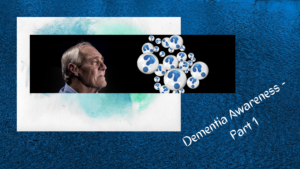With dementia, thoughts become confused
“People living with dementia report that social invitations and inclusion start to dwindle. Carers report feeling they no longer have the support of family or friends when the reality is often people close to them withdraw not knowing how to help or not wanting to intrude.”
These are the words of Maree McCabe AM – CEO of Dementia Australia
Welcome to the World of Dementia
With a diagnosis of dementia, one may be relegated to the ranks of less than. Post-diagnosis is the time in a person’s life when they most need their friends from the past to be there. Sadly, that’s when the friends may gradually disappear. It’s often not an intentional snubbing. It’s more likely that friends from the past often don’t know how to manage interacting with a friend who is changing.
Memory may fade slowly or rapidly – it’s different for everyone. It may be the behaviour that changes. The right word may be difficult to find. Dementia may cause numbers that once were easy, to be indecipherable.
However dementia unfolds, it’s a transition into another world. Sometimes the person living with dementia is aware of their evolution and may be in denial or exhibiting frustration. If they recognise what’s happening it can be very frightening.
Distant Memory is a Friend
What we do know is that it’s most likely that distant memory will be the last to fade. This is where long-term friends come in. They are the link with the past, with conversations of school antics, teen romances and the memory of treats hidden in their school lunch-boxes. Such conversations can bring a smile to the face of a friend with a totally confused mind because it’s a link with the past and its often vivid memories.
It’s now that a person needs a kindly friend or family member to create a playlist of favourite songs, hymns or dance tunes of the past. Such a playlist may transport a person living with dementia to a place where treasured memories are stored. Importantly, this may encourage the feel-good hormones to flow.
TRUE STORY …
Many years ago an elderly relative, living with dementia, visited. Our small son was playing with his wooden semi-trailer and its cars.
Gladys began her conversation, “Isn’t it too early for daffodils? Do you think it will snow?”
She then moved from her chair to the floor to pick up all the wooden toys and placed them neatly on the coffee table, perfectly assembled. As the afternoon unfolded, Gladys continued the dialogue with, “Isn’t it too early for daffodils? Do you think it will snow?” All the while, she moved deftly from her chair to the floor to reassemble the semi-trailer that Luke kept playing with on the floor.
For the entire visit, the daffodils and snow were her only conversation and each time she asked the questions we responded as though it was a new question.
It’s Fine for Us – We Weren’t Living with Her …
I couldn’t begin to imagine how frustrating it would have been if Gladys were living with us and asking these questions day in, day out. How do families cope with the endless repetition? And what about the conversations that make no sense, or the behaviour that may be out of character or just downright embarrassing?
Such are the challenges of families of a person living with dementia. It’s wearing physically and it’s emotionally draining.
What about the Grief?
You may well ask what grief has to do with dementia.
It has everything to do with dementia.
Whilst the person you care about is still alive, you’re commencing the grief process that usually begins after their death. As dementia progresses, you may be watching the person morph into someone else.
They may cease to be your best friend Mum, your supportive Dad, your fun-loving wife, your brave and macho husband. Instead they may be replaced with a repetitive or nonsensical version of someone who looks like the person you have loved for so long, but whose personality doesn’t match.
Read on to see how dementia affected this couple … Fiona’s Story
If this is your family situation, the sooner you have a plan for the future, the better the outcome.
Click here to arrange a complementary 15 minute Discovery Chat




